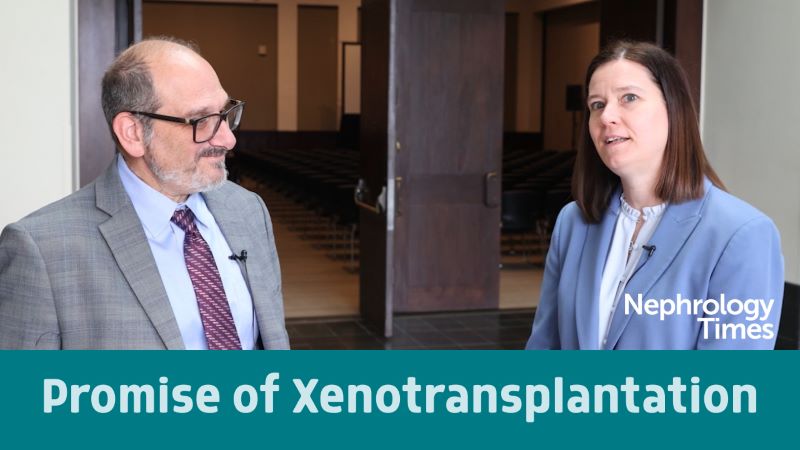
Improved access to kidney transplantation as well as better rates of patient survival may be associated with an increase in older kidney transplant recipients experiencing graft failure. Y. Chen and colleagues conducted a study designed to examine age disparities in access to first and repeat kidney transplantation.
Results of the study were reported during a poster session at the American Transplant Congress 2023. The poster was titled Age Disparities in Access to First and Repeat Kidney Transplantation.
The study utilized data from the United States Renal Data System to identify 2.495,031 adult transplant naïve dialysis patients and 110,338 adult kidney transplant recipients who experienced failure of the first graft between 1995 and 2018. Survival analysis was used to compare the likelihood of waitlisting and receiving repeat kidney transplantation versus first kidney transplantation by patient age (18 to 64 years of age vs ≥65 years of age).
Compared with kidney transplant recipients 18 to 64 years of age, those ≥65 years of age with graft failure had a lower chance of being listed for repeat kidney transplantation (adjusted hazard ratio [aHR], 0.37; 95% CI, 0.36-0.39) as well as a lower chance of receiving repeat kidney transplantation (aHR, 0.75; 95% CI, 0.70-0.79).
Between 1995 and 2018, there was no significant difference in the magnitude of age disparities in access to repeat kidney transplantation among patients with graft failure. There were age disparities observed in access to first kidney transplantation: chance of being waitlisted, aHR, 0.24; 95% CI, 0.23-0.24; and chance of receiving a kidney transplant, aHR, 0.86; 95% CI, 0.84-0.89.
Age disparities in waitlisting for a first kidney transplant were greater among transplant-naïve older patients than among older patients with graft failure waitlisting for repeat kidney transplant (Pinteraction<.001). Disparities in receipt of a kidney transplant were similar (Pinteraction<.09).
In conclusion, the researchers said, “Age disparities exist in access to both repeat kidney transplantation and first kidney transplantation; however, some of this disparity is attenuated among older adults with graft failure, a population that already received kidney transplantation and [is] familiar with transplant procedures. Transplant centers should be aware of these age disparities and help identify appropriate older patients who would benefit from the first and repeat kidney transplantation, regardless of their age.”
Source: Chen Y, Churilla B, Quint E, et al. Age disparities in access to first and repeat kidney transplantation. Poster B304. Abstract of a poster presented at the American Transplant Congress 2023; June 3-7, 2023; San Diego, California.






 © 2025 Mashup Media, LLC, a Formedics Property. All Rights Reserved.
© 2025 Mashup Media, LLC, a Formedics Property. All Rights Reserved.